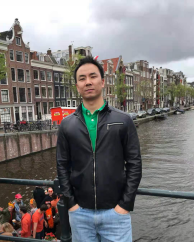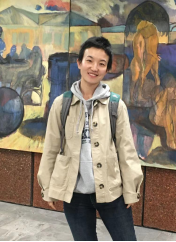At the invitation of the Key Laboratory of Western China’s Environmental Systems (Ministry of Education), College of Earth and Environmental Sciences, Lanzhou University, Dr. Peng Fei from the Department of Earth Sciences, Vrije University Amsterdam and Dr. Han Meiqin from the College of Environmental Sciences, University of Auckland came to our university for a visit and gave an academic report on December 25th, 2020
Lecturer1: Dr. Peng Fei
Title: Reconstruction of ancient flood in the lower Maas River based on fluvial sediment and end element model
Time: December 25th, 14:30-15:30.
Site: Lecture room 502, Qilian Building, Chengguan Campus (Western District) of Lanzhou University
Lecturer2: Dr. Han Meiqin
Title: Interaction and co-evolution of fluvial geomorphology and vegetation in the headwaters of the Yellow River
Time: December 25th, 15:30-16:30
Site: Lecture room 502, Qilian Building, Chengguan Campus (Western District) of Lanzhou University
Lecturer profile


Peng Fei, PhD, specializes in the reconstruction of paleohydrology and paleoclimate. He got his doctor’s degree from the Department of Earth Sciences at Vrije University Amsterdam, Netherlands, in October 2020. His doctoral research project is “Reconstructed the paleo-flood records of the lower Maas River since late ice age by analyzing the physicochemical indexes and end element models of river sediments”. He has published 3 papers on Global and Planetary Change and Geomorphology as the first author.
Han Meiqin, PhD., mainly engaged in the braided river geomorphology and vegetation interaction and mutual evolution of river regime, including short time scale reconstruction of river evolution, analysis on the common change and mutual influence of geomorphology, hydrology and vegetation, and the response of plateau river downstream of the dam to dam construction, etc. She got her doctor’s degree in Physical Geography from the College of Environment, University of Auckland, New Zealand, in December 2020. She has published 3 papers on Catena and Progress in Physical Geography.